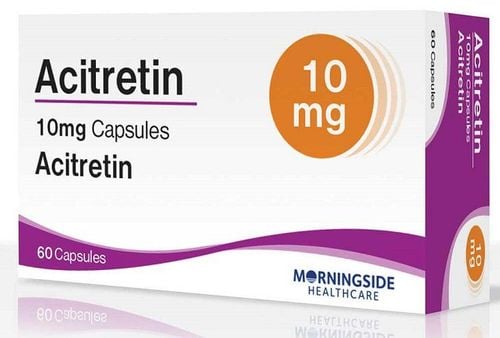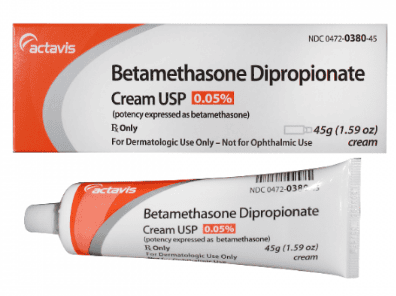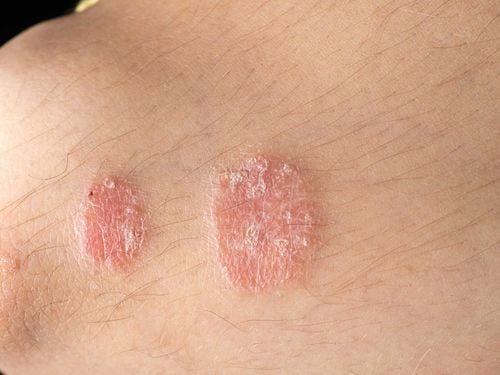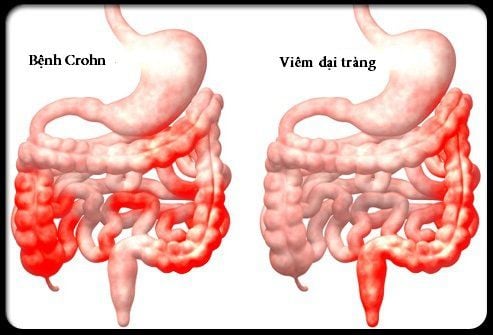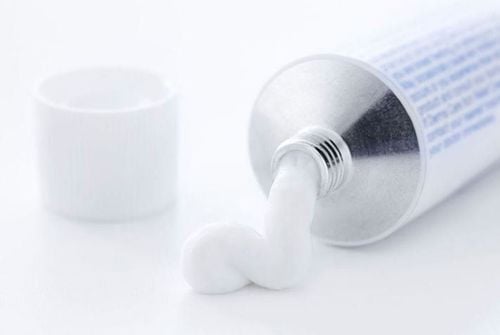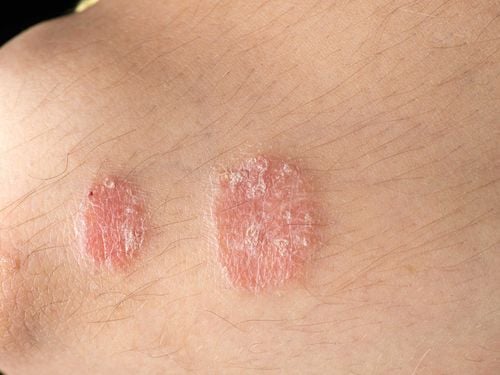This is an automatically translated article.
The article was professionally consulted by Specialist Doctor I Tran Van Sang - Dermatologist - Department of Medical Examination & Internal Medicine - Vinmec Danang International General HospitalPsoriasis (most commonly plaque psoriasis) is one of the most common chronic skin diseases today. This disease will cause discomfort and greatly affect the patient's daily life.
1. What is Psoriasis?
Psoriasis is a dysregulation (cell proliferation and inflammation) that forms a tight barrier on the surface of the skin. Normally, old skin cells will die on their own, slough off and new skin cells will take their place. However, in people with psoriasis, the replacement of dead cells will be 10 times faster, causing old and new cells to not replace each other, accumulating into thick, red patches of skin on the scaly surface. Candle wax white and clearly demarcated from surrounding uninfected skin.
Plaque psoriasis is the most common type (accounting for 80% of all psoriasis cases) with the characteristic that the infected skin will spread throughout the body. The most common areas of the body to get infected are areas of pressure such as knees, elbows, and scalp. The affected skin areas are 2 to 20 cm in diameter.
Symptoms of plaque psoriasis are easy to recognize:
The damaged skin is red and inflamed. The surface of the skin is covered with white scales like candle wax. The skin is dry, cracked and bleeding 50% of people with the disease Psoriasis will cause itching

2. Causes of psoriasis and plaque psoriasis
Psoriasis in general and plaque psoriasis in particular are both caused by immune system disorders and a number of other risk factors. The human immune system will work by detecting and destroying foreign elements that are harmful to the body such as viruses and bacteria. When the immune system is weakened, it will mistakenly attack the epidermal cells, causing skin cells to grow 10 times faster than normal. Normally, the body's dead cell replacement process is from 28 to 30 days, but when infected, it will only be 3-4 days, the speed is too fast, causing dead skin to accumulate on the surface of the skin, causing inflammation. , swollen, scaly white leads to psoriasis.
Psoriasis is very difficult to treat definitively, some risk factors make psoriasis worse in patients are:
Genetic factors, family history of psoriasis: If father or mother If the mother has ever had psoriasis, the child will have an 8% chance of getting the disease, if both parents have psoriasis, the child will have an infection rate of up to 41%. Prolonged stress, anxiety Use too much alcohol, beer Smoking Injuries, skin abrasions: Psoriasis is easy to develop in places where the skin is injured and lightly scratched. Weather: When the weather is cold, it will dry the skin and make it easier to develop psoriasis. Hot and humid weather often makes the disease more mild. However, there are also cases where the disease is worse when exposed to sunlight (photosensitive psoriasis). People taking medications for high blood pressure and bipolar disorder. Infections: Streptococcal upper respiratory infections such as pharyngitis or tonsillitis can both trigger droplet psoriasis (a form of psoriasis) or make it worse. People with HIV also make psoriasis worse.
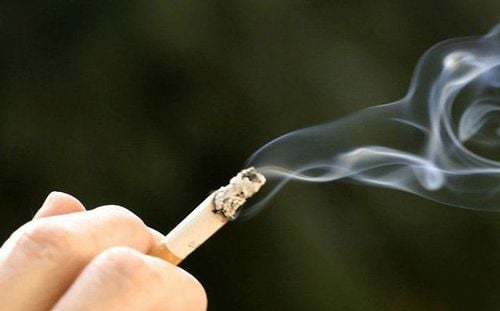
3. Prevention and notes for people with psoriasis
Prevention is better than cure, each person needs to actively prevent psoriasis in the following ways:
Avoid anxiety and stress often. Have a moderate lifestyle, do not abuse alcohol and other stimulants. Daily body hygiene, clean bathing, having a scientific diet. Supplement the diet containing beneficial fatty acids such as omega-3, vegetables rich in vitamin b12, zinc,... For people with psoriasis, it should be noted:
Moderate activity, daily body hygiene days to remove skin inflammation. Do not use water that is too hot and soaps with strong detergents as this can further damage the affected skin. Be careful with foods containing a lot of protein and fishy such as fish, shrimp, crab, crab,... Stop using food and drink with stimulants: alcohol, beer, tobacco,... Limit contact with chemicals such as soaps, shampoos, cosmetics, perfumes, hair dyes... Clinical dermatology specialists at Vinmec International General Hospital examine, diagnose, treat, prevent and restore Functions of diseases in the field of Leprosy and Dermatology with common diseases such as: Atopic dermatitis, melasma, freckles, acne/scars/stretch marks, allergic/irritation contact dermatitis, aging skin, diseases of skin pigmentation, fungi, syphilis, warts, deep-rooted fungi causing internal diseases, benign tumors in the skin, fingernails, moles,... Visit the General Hospital At Vinmec International, patients will receive a direct, dedicated and professional examination from a team of qualified and experienced medical staff.
Please dial HOTLINE for more information or register for an appointment HERE. Download MyVinmec app to make appointments faster and to manage your bookings easily.





